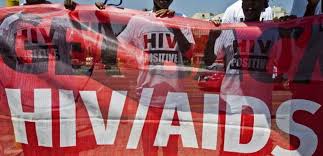By: Jackson Mukuka Nawa
At least 300,000 children were newly infected with HIV in 2020, or one child every two minutes, UNICEF said in a report released for World AIDS Day on 1 December. Another 120,000 children died from AIDS-related causes during the same period, or one child every five minutes.
In Nigeria, 20,695 children aged 0-9 years were newly infected with HIV in 2020 – or one child every 30 minutes.
The latest HIV and AIDS Global Snapshot warns that a prolonged COVID-19 pandemic is deepening the inequalities that have long driven the HIV epidemic, putting vulnerable children, adolescents, pregnant women and breastfeeding mothers at increased risk of missing life-saving HIV prevention and treatment services.
“The HIV epidemic enters its fifth decade amid a global pandemic that has overloaded health care systems and constrained access to life-saving services. Meanwhile, rising poverty, mental health issues, and abuse are increasing children and women’s risk of infection,” said UNICEF Executive Director Henrietta Fore. “Unless we ramp up efforts to resolve the inequalities driving the HIV epidemic, which are now exacerbated by COVID-19, we may see more children infected with HIV and more children losing their fight against AIDS.”
Alarmingly, 2 in 5 children living with HIV worldwide do not know their status, and just over half of children with HIV are receiving antiretroviral treatment (ART). Some barriers to adequate access to HIV services are longstanding and familiar, including discrimination and gender inequalities.
In Nigeria, about 30 per cent of AIDS-related deaths in 2020 occurred in children. Alarmingly, only about 3.5 per cent of the 1,629,427 Nigerians receiving antiretroviral treatment (ART) are children, revealing a big treatment gap.
Barriers to adequate access to HIV services are longstanding and familiar, including discrimination and gender inequalities.
In Nigeria, almost eight out of ten new infections occurring in adolescents aged 10-19 occur in adolescent girls, while an estimated 83,000 pregnant women in Nigeria are HIV positive. Only 44 per cent of them are on ART, risking continued mother-to-child transmission of HIV.


